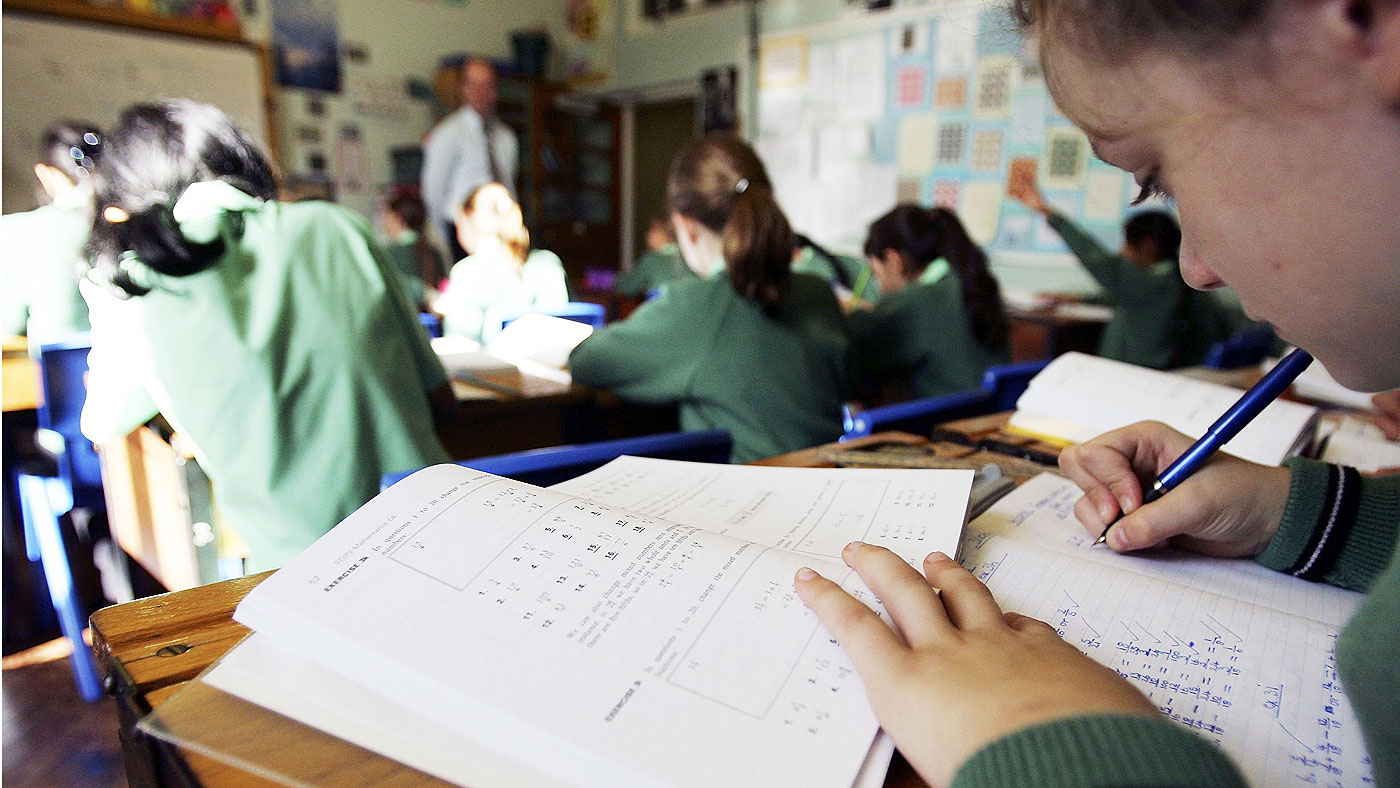What is the ‘word gap’ and why does it matter?
Education Secretary Damian Hinds to address crisis of children starting school without basic language skills

A free daily email with the biggest news stories of the day – and the best features from TheWeek.com
You are now subscribed
Your newsletter sign-up was successful
The Government is launching a new initiative to address the “scandal” of children starting school in Britain without vital literacy skills.
Education Secretary Damian Hinds will today promise to halve within a decade the number of children lacking the required level of early speaking or reading skills - termed the “word gap” by education experts.
His department’s figures “show that 28% of four- and five-year-olds do not meet communication and literacy levels expected by the end of the reception year”, reports The Guardian.
The Week
Escape your echo chamber. Get the facts behind the news, plus analysis from multiple perspectives.

Sign up for The Week's Free Newsletters
From our morning news briefing to a weekly Good News Newsletter, get the best of The Week delivered directly to your inbox.
From our morning news briefing to a weekly Good News Newsletter, get the best of The Week delivered directly to your inbox.
Speaking at the Resolution Foundation in Westminster, Hinds is expected to say that he has no desire to “lecture” parents about how to raise their children.
But he will warn that children whose language development is behind that of their peers when they start school at the age of four rarely catch up and that “the gap just widens”.
“It is a persistent scandal that we have children starting school not able to communicate in full sentences, not able to read simple words,” Hinds will say, adding that the issue has “a huge impact on social mobility”.
How bad is the UK’s so-called word gap?
A free daily email with the biggest news stories of the day – and the best features from TheWeek.com
Although poverty and disadvantage is “infinitely more complex than simply the limits of our language, the ‘word gap’ that divides children from disadvantaged and advantaged backgrounds can be known, understood and acted upon”, says TES’s Alex Quigley.
In a study by the Oxford University Press (OUP) earlier this year, 69% of primary school teachers and 60% of secondary school teachers said they believed the problem was getting worse.
Research released this week ahead of Hinds’ speech revealed that children with a poor vocabulary at the age of five are more than twice as likely to be unemployed by the age of 34 as children with good vocabulary, reports The Independent.
Why is vocabulary so significant?
“Teachers believe the word gap occurs when children don’t read for pleasure or have enough opportunity to practise vocabulary,” says publishing news site The Bookseller.
Jane Harley, strategy director for UK education at OUP, says: “Without enough language - a word gap - a child is seriously limited in their enjoyment of school and success beyond.
“Language is at the heart of education and we believe that more needs to be done to address the issue throughout school and give teachers support to make a difference to these children’s lives.”
Kate Nation, professor of experimental psychology at the University of Oxford, told The Guardian that language ability variation among children was complex and difficult to attribute to a single cause.
But “regardless of the causes, low levels of vocabulary set limits on literacy, understanding, learning the curriculum and can create a downward spiral of poor language which begins to affect all aspects of life”, Nation said.